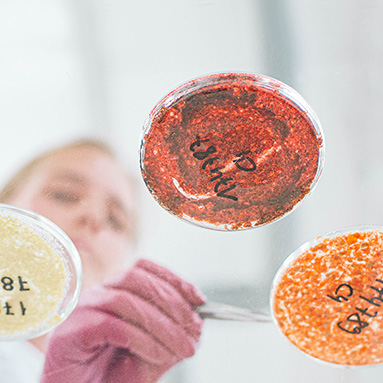Ready to start?
Testing doesn't have to be difficult. We’ve got your back!
With us you get the easiest way to the best results!
Book a Free ConsultationFor the verification of the geographical origin, the isotope fingerprint of the product or material is determined by isotope analysis. With this approach it is possible to guarantee and analytically verify the traceability independently from documents. In most cases Imprint Analytics recommends a system based on reference samples. The isotope fingerprint of authentic reference samples is established and then the control samples are compared directly with the reference dataset. This approach offers traceability across the supply chain, connecting the product back to the origin.


Using our accredited methods, added ingredients such as water, sugar, ethanol, technical CO2 and many others can be detected. This enables us to uncover frauds with illegal or undeclared exogenous ingredients in a wide range of products, such as juices, honey, wine and alcoholic drinks. Concerning the addition of sugar, it is further possible to differentiate between sugar of C3-plants (such as beet sugar) and sugar of C4-plants (such as cane sugar or corn).


Food products often contain a variety of ingredients which have to be declared and labelled. Flavorings, for instance, can be of natural or synthetic origin (eg. based on Regulation (EC) No 1334/2008). Imprint Analytics holds datasets for a large number of flavoring compounds and supplements in order to make a direct determination and verification of the substance's source and thus define its natural or synthetic nature.


Stable isotope ratios can serve as an attractive tool for the analytical verification of organic products. Certain isotopic ratios are influenced by the production process, agricultural practices and farming regime. A common example is the investigation of the nitrogen isotope signature of plants and their significance as an indicator of the use of synthetic fertilizers during plant growth. For animal products, the use of carbon and nitrogen isotope ratios may contribute in the assessment of the feeding regime and thus support compliance with organic farming regulations.


Isotope analysis plays a decisive role when it comes to traceability of batches in the areas of production, import and export. With retained samples, the identity of products can be verified independently of documents. Comparison of batches can provide support in product safeguarding in cases like accusation of plagiarism or product defects. A control sample is directly compared with an original reference sample, providing strong evidence of authenticity.


Species identification can serve as method of choice if there is a suspected substitution of animal with plant products and vice versa (e.g. for cheese). Also if the focus is on the detection of a (partial) substitution of the named source animal by another (e.g. for yoghurt), of one botanical material by another (fruit pulps, herbs), identification of these species can be a supporting analytical method of choice. We also offer DNA profiling of a number of high value products.


Thus equipped, we are confident and proud of the support and guidance we provide to our partners in order to adopt the proper analytical approach.
With us you get the easiest way to the best results!
Book a Free Consultation